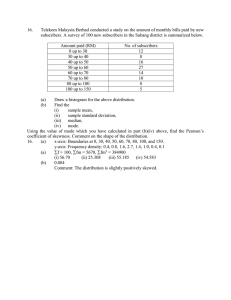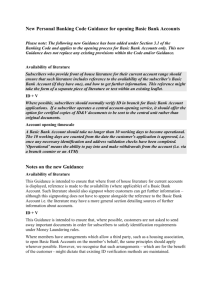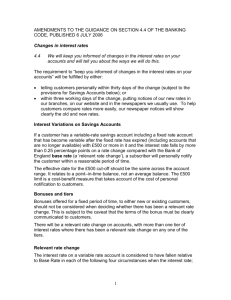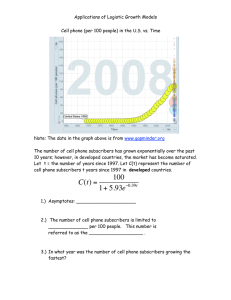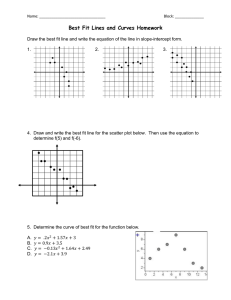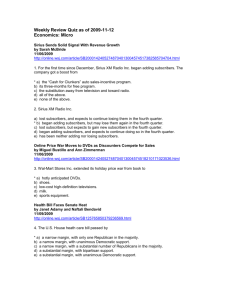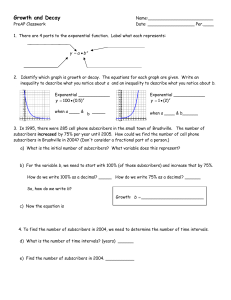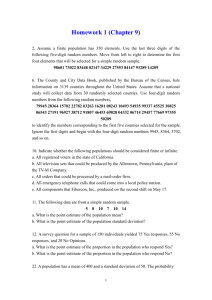The Product and Quotient Rules
advertisement
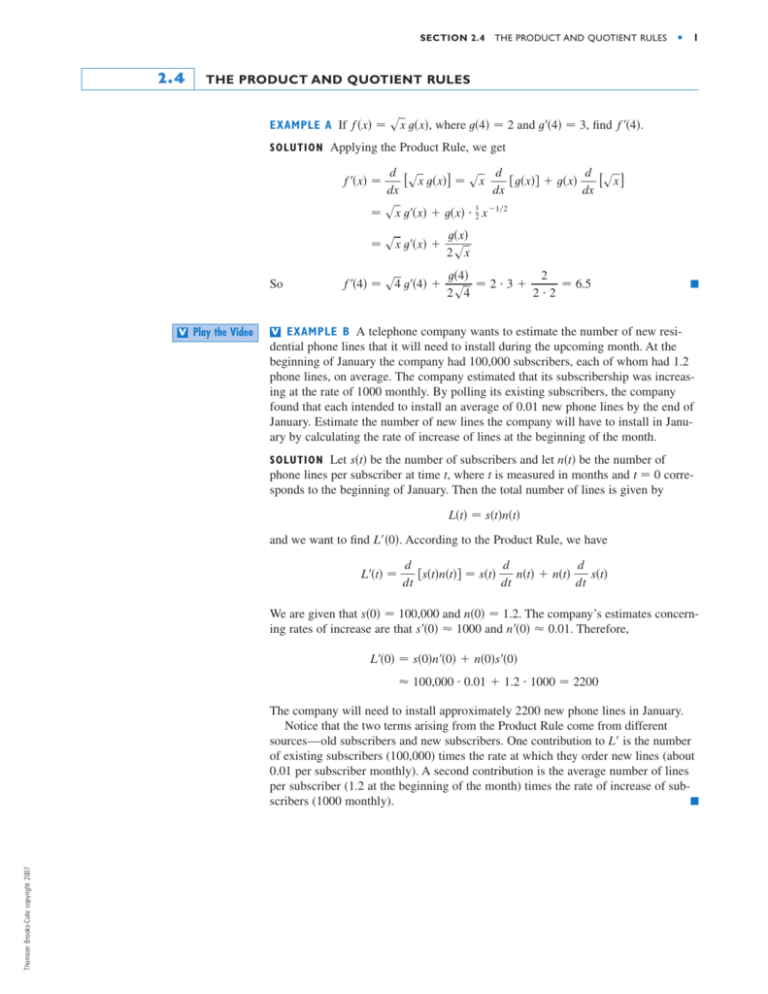
SECTION 2.4 2.4 THE PRODUCT AND QUOTIENT RULES ■ 1 THE PRODUCT AND QUOTIENT RULES EXAMPLE A If f 共x兲 苷 sx t共x兲, where t共4兲 苷 2 and t⬘共4兲 苷 3, find f ⬘共4兲. SOLUTION Applying the Product Rule, we get f ⬘共x兲 苷 d d d [sx t共x兲] 苷 sx dx 关t共x兲兴 ⫹ t共x兲 [sx ] dx dx 苷 sx t⬘共x兲 ⫹ t共x兲 ⭈ 12 x ⫺1兾2 苷 sx t⬘共x兲 ⫹ So V Play the Video f ⬘共4兲 苷 s4 t⬘共4兲 ⫹ t共x兲 2sx t共4兲 2 苷2⭈3⫹ 苷 6.5 2s4 2⭈2 ■ V EXAMPLE B A telephone company wants to estimate the number of new residential phone lines that it will need to install during the upcoming month. At the beginning of January the company had 100,000 subscribers, each of whom had 1.2 phone lines, on average. The company estimated that its subscribership was increasing at the rate of 1000 monthly. By polling its existing subscribers, the company found that each intended to install an average of 0.01 new phone lines by the end of January. Estimate the number of new lines the company will have to install in January by calculating the rate of increase of lines at the beginning of the month. SOLUTION Let s共t兲 be the number of subscribers and let n共t兲 be the number of phone lines per subscriber at time t, where t is measured in months and t 苷 0 corresponds to the beginning of January. Then the total number of lines is given by L共t兲 苷 s共t兲n共t兲 and we want to find L⬘共0兲. According to the Product Rule, we have L⬘共t兲 苷 d d d 关s共t兲n共t兲兴 苷 s共t兲 n共t兲 ⫹ n共t兲 s共t兲 dt dt dt We are given that s共0兲 苷 100,000 and n共0兲 苷 1.2. The company’s estimates concerning rates of increase are that s⬘共0兲 ⬇ 1000 and n⬘共0兲 ⬇ 0.01. Therefore, L⬘共0兲 苷 s共0兲n⬘共0兲 ⫹ n共0兲s⬘共0兲 ⬇ 100,000 ⭈ 0.01 ⫹ 1.2 ⭈ 1000 苷 2200 Thomson Brooks-Cole copyright 2007 The company will need to install approximately 2200 new phone lines in January. Notice that the two terms arising from the Product Rule come from different sources—old subscribers and new subscribers. One contribution to L⬘ is the number of existing subscribers (100,000) times the rate at which they order new lines (about 0.01 per subscriber monthly). A second contribution is the average number of lines per subscriber (1.2 at the beginning of the month) times the rate of increase of subscribers (1000 monthly). ■
